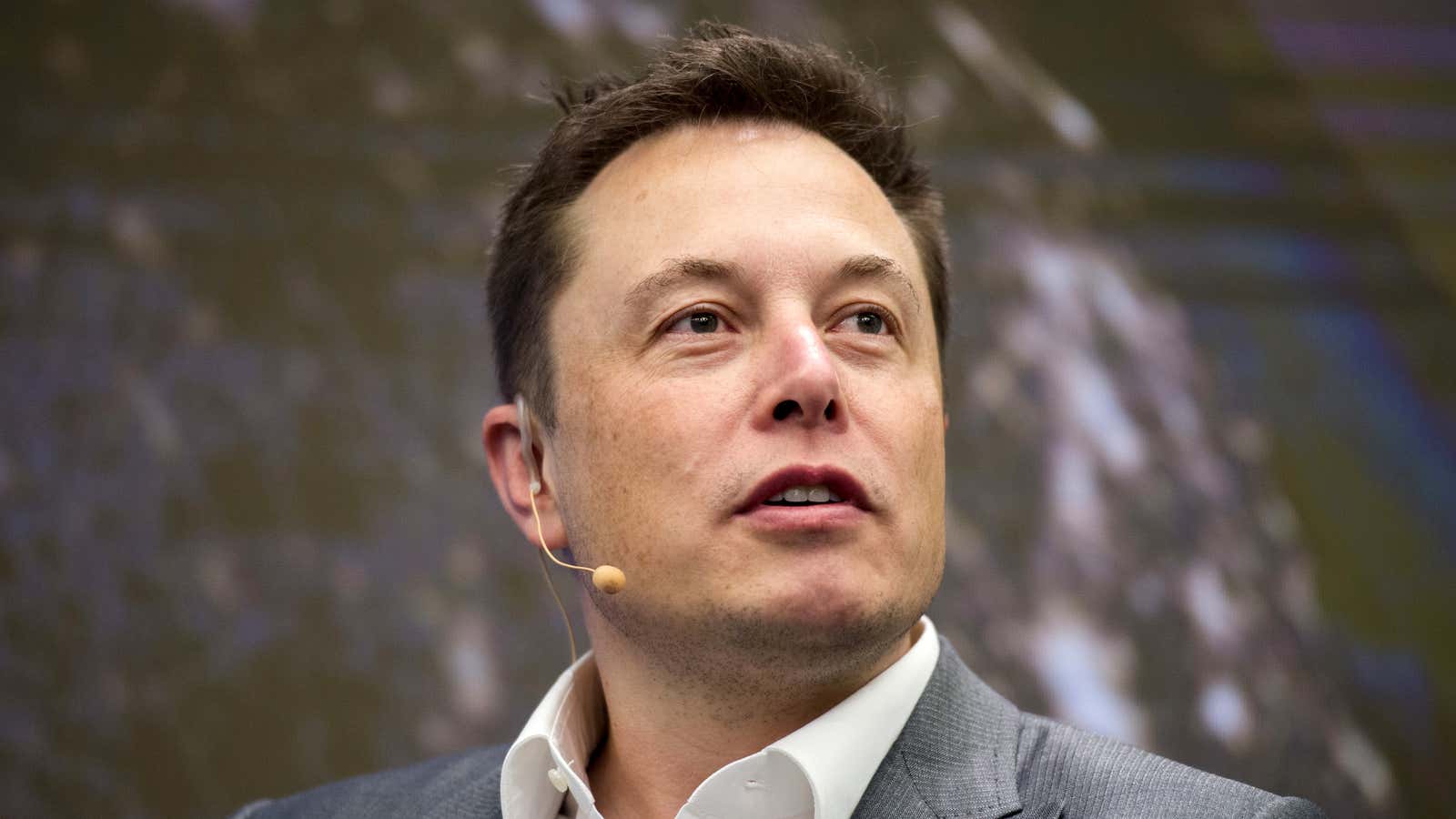This post has been updated with comments from Sam Altman and corrected.
The robots are coming, and Silicon Valley wants to make sure they’re on our side. Today (Dec. 11), Tesla and SpaceX CEO Elon Musk, along with a veritable cornucopia of technology giants and scientists, announced the formation of OpenAI, a “non-profit artificial intelligence research company.”
According to the company’s press release, the non-profit will be led by Musk, along with Sam Altman, the president of startup incubator Y Combinator. The two are joined by backing from Reid Hoffman, the founder of LinkedIn; Jessica Livingston, another Y Combinator founder; and Peter Thiel, who cofounded PayPal with Musk and is now a prominent venture capitalist. The group, along with Amazon Web Services, Infosys, and Y Combinator, have pledged $1 billion for artificial intelligence research that keeps humanity at its core.
Musk, along with many other prominent tech figures, has in the past voiced his concerns over the way artificial intelligence is being researched. He signed a letter aiming to ensure we don’t develop AI weapons, and he previously committed $10 million to the Future of Life Institute, another non-profit aiming to ensure that AI doesn’t negatively affect humanity. OpenAI appears to be an extension of his long-held feelings on the future of artificial intelligence.
Altman told Quartz that he and others in the group had been brainstorming the idea for a while. “Over the last couple of months, it really started to come together,” he said. “We were able to recruit what I think its one of the best collections of researchers in the world: We’ll get started and see how it goes.”
Many have suggested that once we develop a truly artificially intelligent system, it could quickly blow by our own intelligence. “It’s hard to fathom how much human-level AI could benefit society, and it’s equally hard to imagine how much it could damage society if built or used incorrectly,” the group said in its release.
The group of engineers and technologists is joined by some prominent AI researchers, including Andrej Karpathy, and Wojciech Zaremba and Pamela Vagata, both of whom work with Facebook’s lead AI researcher, Yann LeCun. OpenAI said in its release that it wants to grow into a research institution that will share with the wider AI research community. While OpenAI won’t be able to directly influence the work of the entire AI community, Altman said that because the group has “no fiduciary duty to shareholders,” he hopes it will be able to collaborate with a wide swath of industry and academic groups researching in the field.
Many companies are pouring funds into AI research, from Silicon Valley firms like Google, to industrial titans like Toyota, which also recently pledged $1 billion to AI and robotics research. ”I’d say hopefully we’ll do a better job spending that than Toyota does,” Altman said.
Correction, Dec. 12, 10:00am: An earlier version of this post incorrectly stated that Sam Altman was the founder of Y Combinator. He is in fact its current president.
